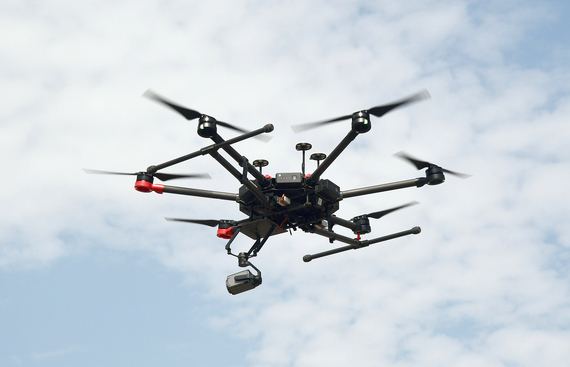Drones Delivering Vaccines? Understand the Pros & Cons

Usage of drones to deliver covid vaccines seems to be an optimistic move to ensure the availability of vaccines in the state. The ministry of civil aviation and the Directorate General of Civil Aviation has initiated the hope with conditional exemption to the Telangana government to deliver covid vaccines using drones.
The Centre has asked for the collaboration of the Indian Council of Medical Research and IIT Kanpur to do a possible study on vaccine delivery using drones. This association could be for a year or until further commands.
Let’s discuss its pros and cons, and how far it could be possible to practice in the real world.
Possible aid with the drones delivering vaccines
The government is facing a challenge to vaccinate a country of a billion people. Initially, it is dependent on the extensive railway network, besides the road and air transport to mete out vaccines even to the remotest parts of the country and hilly regions. Nevertheless, considering the terrifying scenario of the country, every possibility for vaccine delivery needs to be acknowledged.
To design a system for the successful transportation of vaccines using drones requires feasibility studies. These studies are going to be very helpful especially for faraway areas, where logistic channels are restricted, said a senior DGCA official.
Some of the significant criteria for the feasibility studies
The study at the IIT-Kanpur campus will implicate a standardised approach. It will consist of two steps and in the first step, the drone will have functioned within the visual line of sight. This will be conducted in advance of the next step of trials. The second step of trails can set to involving a flight path that is beyond the line of sight of the drone operator.
If the stages are accomplished effectively, further approval will be required from the authorities to discover the possibility of vaccine delivery using drones.
Earlier events of drones delivering vaccines
Some of the countries have been trial and working on the usage of drone for vaccine delivery. In this manner, Ghana has begun a major drone delivery vaccine worldwide network. Through the services of the US’s Zipline to deliver vaccines endowed to Africa in the course of the COVAX initiative. It is supported by the World Health Organization to confirm developing nations have access to covid-19 vaccines. Thereby, drones have also been used by Zipline to deliver blood and drugs in Rwanda, and medical supplies and PPE kits in North Carolina.
Some of the significant challenges
India has experienced the usage of drone and its challenges. Since 2000, Indian armed forces have been using drones with payload delivery capability. And the lessons learnt can assist alleviate some of the challenges. On the other hand, an important concern for shipping vaccines using drones or unmanned aerial vehicles (UAVs) is maintaining low temperature during the transportation of vaccine vials. Above and beyond, the government and drone operators should make an agreement on emergency airspace usage for vaccine transportation, said Mark Martin, chief executive of aviation consultancy firm Martin Consultancy LLC.
In the context of the covid vaccine transportation initiative, India is capable to use five UAV or drone per district with a range of 80km and also with a payload of 10 kg and endurance of two hours. Having 718 districts in India, 3,600 drones can be arranged to supply an effective weight of vaccines via each flight, or 15,000 kg vaccine distribution capability per day, Martin added.
Read More News :
